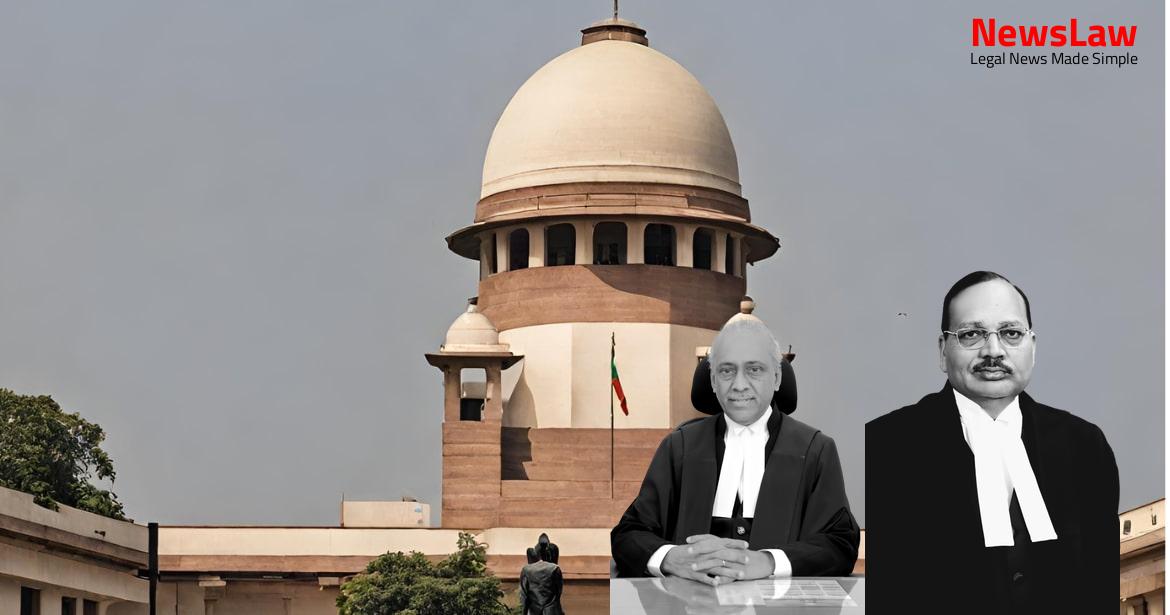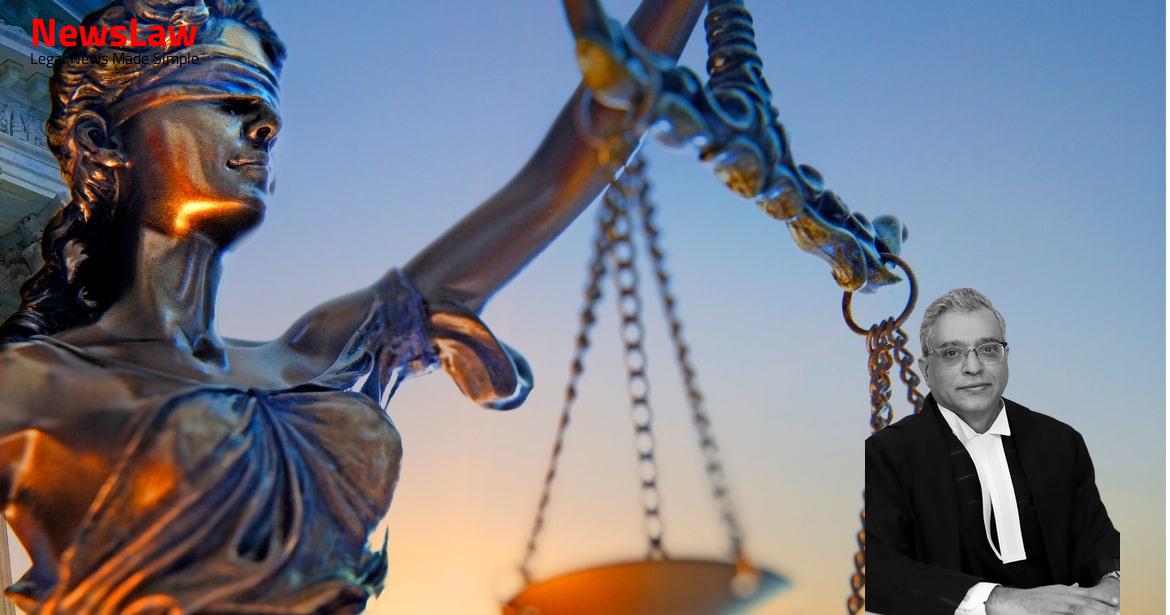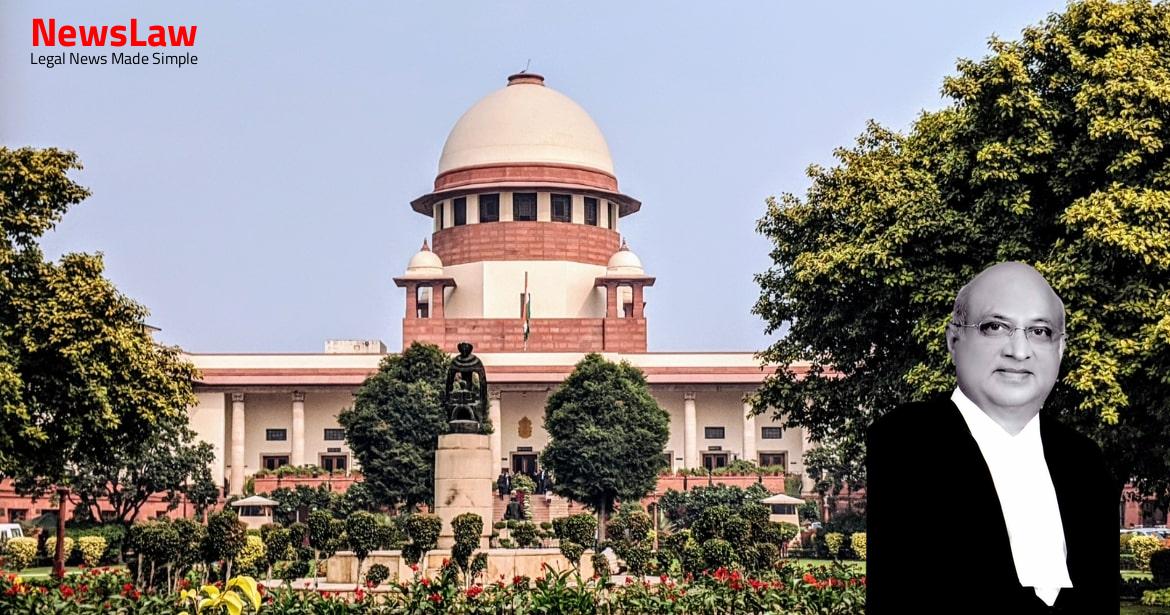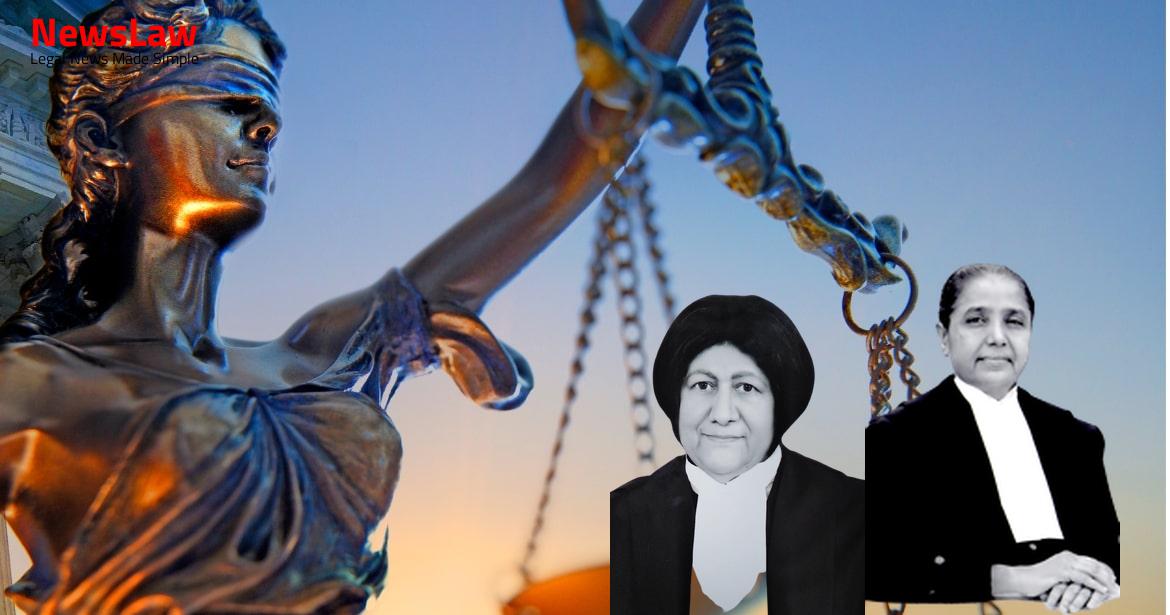In a significant legal development, the Supreme Court of India has delivered a crucial judgment in the Land-Grabbing Conspiracy Case. This case, involving allegations of blackmail and land-grabbing conspiracy, saw the accused individuals attempting to create third-party rights in the property of the legal heirs of Bhikhabhai. The judgment has far-reaching implications on the process of investigation and ensuring justice is served in cases of property disputes and criminal conspiracies.
Facts
- Legal heirs of Bhikhabhai applied to cancel revenue entries made in 1976.
- Accused filed applications for further investigation and discharge.
- Accused were accused of attempting to create third-party rights in the property.
- FIR alleged blackmail and land-grabbing conspiracy by accused.
- Accused contacted intermediary to settle disputes for Rs. 2.5 crores.
- Original tenant Bhikhabhai died, son Bhikhabhai took over.
- Magistrate dismissed applications for further investigation.
- Magistrate rejected discharge applications.
- Magistrate issued summons to the accused under various IPC sections.
- The High Court criticized IO Munshi for furnishing interim investigation reports directly to the Additional Sessions Judge instead of the Magistrate through a special public prosecutor.
- The High Court deemed this action as having mala fides, suggesting a bias towards the accused individuals.
- The interim investigation reports were seen to virtually acquit the accused persons, leading to the judgment of the Second Additional Sessions Judge being set aside.
- Both the judgment and the interim investigation reports were disregarded for favoring the accused individuals.
- A Criminal Revision Application was remanded for fresh consideration regarding the necessity of filing an FIR.
- The learned Additional Sessions Judge subsequently rejected an application under Section 156(3) of the CrPC, prompting the filing of Special Criminal Application No.3085 of 2016.
- Another application, Special Criminal Application No.727 of 2012, was filed in the High Court to challenge a previous order regarding discharge applications.
- In a joint hearing, the High Court ruled that a Magistrate does not possess the authority to order further investigation after the filing of a charge-sheet and taking cognizance.
Also Read: Supreme Court Judgement: Determination of ‘Seat’ of Arbitration Proceedings
Issue
- The issue at hand is whether a Magistrate has the power to order further investigation after a charge-sheet has been filed by the police.
- The question is also about the extent of this power and at what stage of the criminal proceeding it can be exercised.
- The key inquiry is whether the order given by the Magistrate falls under his executive or judicial capacity.
- The specific concern is whether a Magistrate can direct further investigation once a police report has been submitted to him under Section 173 of the CrPC.
Also Read: Union of India v. Arbitral Award: Limitation and Condonaion of Delay
Arguments
- IO Munshi submitted interim investigation reports quickly
- IO submitted reports to Additional Sessions Judge instead of Magistrate
- Further investigation needed as huge fraud committed by land-grabbing mafia
- Travesty of justice if Second Additional Sessions Judge’s judgment not upheld
- High Court incorrect in holding Magistrate has no power to order further investigation post-cognizance
- Arguments by Senior Advocate Dushyant Dave based on CrPC provisions and judgments
- Detailed references to FIR, charge-sheet, and communication by Commissioner of Revenue, Gujarat
- Shri Basant and Shri Navare, learned Senior Advocates for the respondents, supported the judgment of the trial court and the High Court.
- They emphasized that without filing a cross-FIR, presenting evidence that could potentially serve as a defense in the upcoming trial would be impermissible.
- They argued against upholding the order of the Second Additional Sessions Judge for further investigation, expressing confidence in the decisions of the trial court and the High Court.
Also Read: Landmark Supreme Court Judgement in a Criminal Case Involving the Rape and Murder of Minors
Analysis
- The Magistrate has the power under Section 156(3) to direct further investigation, which is an independent power and does not conflict with the power of the State Government.
- The investigating agency should keep its options open to continue the investigation, especially when new relevant facts and individuals may be involved in the crime.
- The police can undertake further investigation even after issuing a police report under Section 173.
- It is open for the investigating agency to file an application for further investigation after submitting the report under Section 173(2).
- The Magistrate can exercise discretion regarding further investigation based on the facts of each case and in accordance with the law.
- The investigating officer has the authority to conduct further investigation without limiting the stage of the proceedings. The court can order further investigation if the facts and justice demand, despite limitations in Section 173(8) of the CrPC.
- Seeking leave of the court before conducting further investigation is a good practice to ensure justice and safeguard suspects/accused.
- The power of the police to investigate further is not exhausted by the Magistrate taking cognizance of the offense. The Magistrate can direct further investigation under Section 156(3) even after receiving the police report under Section 173(2).
- The CrPC defines a cognizable case as an offense for which a police officer can arrest without a warrant.
- A complaint is any allegation made to a Magistrate, orally or in writing, regarding the commission of an offense.
- The CrPC maintains a clear separation between inquiry, trial, and investigation.
- Inquiries are conducted by a Magistrate or Court, excluding trials.
- Investigations involve the collection of evidence by a police officer or other authorized persons.
- The Magistrate examining a complaint must do so upon oath, unless certain exceptions apply.
- The statutory scheme in CrPC organizes procedures under different chapters based on the stage of the legal process.
- The issuing of process against an accused is postponed in certain cases for further inquiry.
- Evidence may be taken on oath during an inquiry if the Magistrate deems it necessary.
- No summons or warrant can be issued without a list of prosecution witnesses filed.
- Further investigation can be conducted even after an initial report is forwarded to the Magistrate.
- Various sections in the CrPC outline the powers of Magistrates in handling cognizable cases, investigations, and inquiries.
- A complainant can approach a Magistrate under Section 156(3) if they believe the police investigation is inadequate.
- The Magistrate has the authority to order a proper investigation and take necessary steps for the same.
- Process fees must be paid before issuing any process, as per the law.
- The neat distinction between police investigation and court jurisdiction is evident from the chapter headings in the CrPC.
- The Magistrate cannot direct reinvestigation or suo motu direct further investigation after receiving a report under Section 173(2) of the Code.
- The options open to a Magistrate after receiving a report under Section 173(2) include accepting the report and dropping the proceedings, disagreeing with the report and taking cognizance of the offence, or directing further investigation by the police under Section 156(3).
- The power of the Magistrate under Section 156(3) is independent and does not affect the power of the investigating officer to further investigate even after submitting a final report under Section 173(8).
- A fair trial must only begin after a fair and just investigation has taken place.
- The Magistrate has the authority to order further investigation after receiving a report under Section 173(2) and may exercise this power with the aid of Section 156(3) of the Code.
- Article 21 of the Constitution guarantees the right to a fair trial, including fair investigation, ensuring the accused is not prejudiced and the guilty are brought to justice.
- The law supports the Magistrate’s power to direct further investigation until charges are framed under Section 156(3) read with Section 173(8) of the CrPC.
- The Court’s role is to ensure the investigation is fair, just, and aimed at discovering the truth to serve justice effectively.
- The Magistrate has the jurisdiction to order further investigation even after charges are framed if it serves the interest of justice and truth.
- Setting aside the impugned High Court judgment
- The Magistrate retains the power to order further investigation post-cognizance
- Clarification that post-cognizance, the Magistrate is not denuded of power to order further investigation
Decision
- The facts stated in the application for further investigation are not directly relevant to the investigation conducted based on the FIR dated 22.12.2009.
- The High Court judgment setting aside the order for further investigation by the Second Additional Sessions Judge dated 10.01.2012 is upheld.
- The High Court judgment remanding the matter to the revisional court is set aside.
- The judgment of the Additional Sessions Judge dated 23.04.2016 upon remand is also set aside, making Special Criminal Application No.3085 of 2016 irrelevant.
- Based on the serious nature of the facts alleged in the communication of the Commissioner of Revenue dated 15.03.2011, a direction is given to the police to register an FIR within one week from the date of this judgment.
- If the police report shows a prima facie case and the Judicial Magistrate takes cognizance, charges will be framed and trial held.
- The trial in the FIR dated 22.12.2009 remains stayed until the police report is submitted in the new FIR instructed to be lodged.
- The new FIR is to be investigated by a designated senior police officer within three months.
- The Magistrate will decide on joint-trial or separate trials based on the police report in the new FIR.
Case Title: VINUBHAI HARIBHAI MALAVIYA Vs. THE STATE OF GUJARAT
Case Number: Crl.A. No.-000478-000479 / 2017



